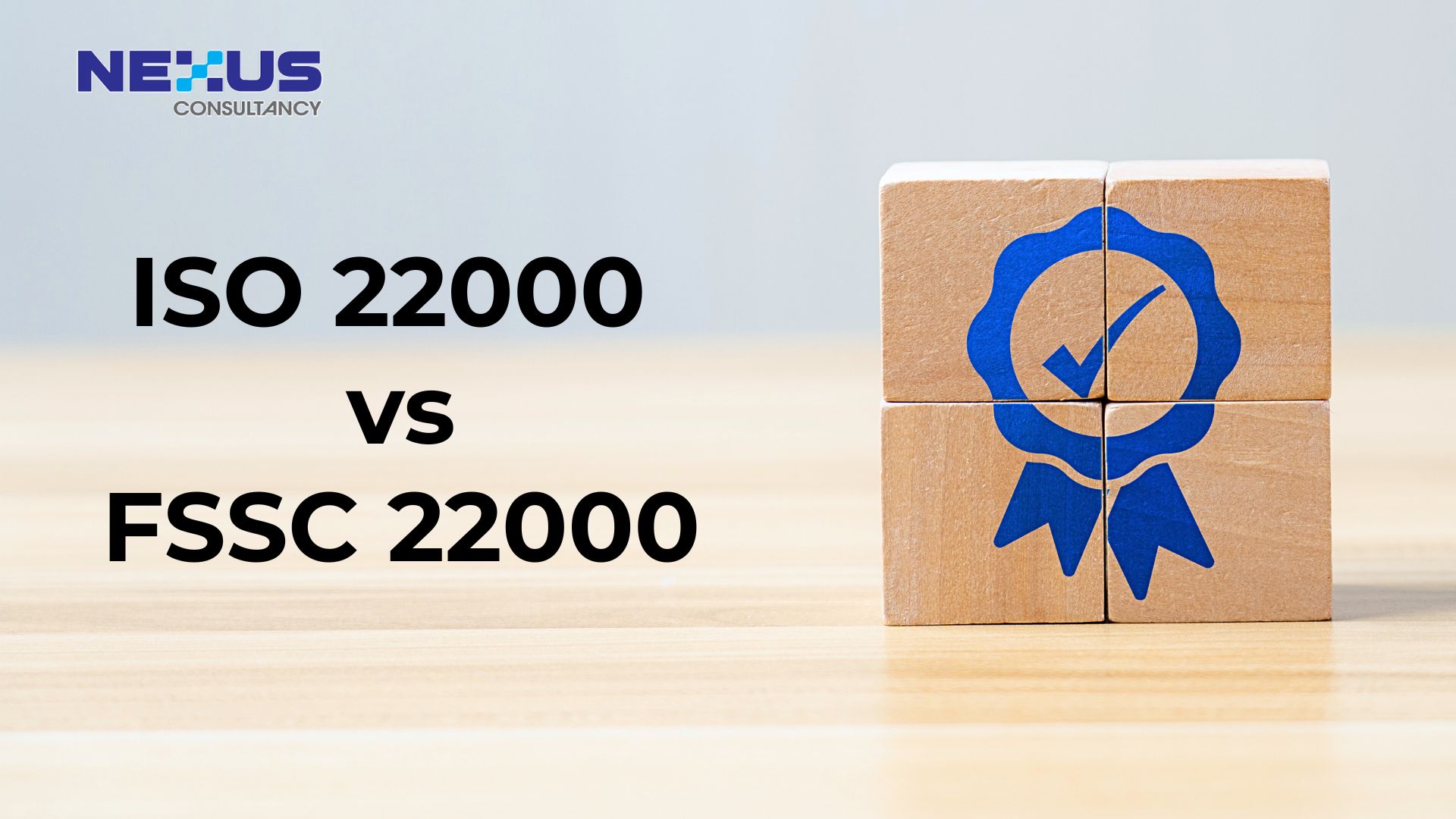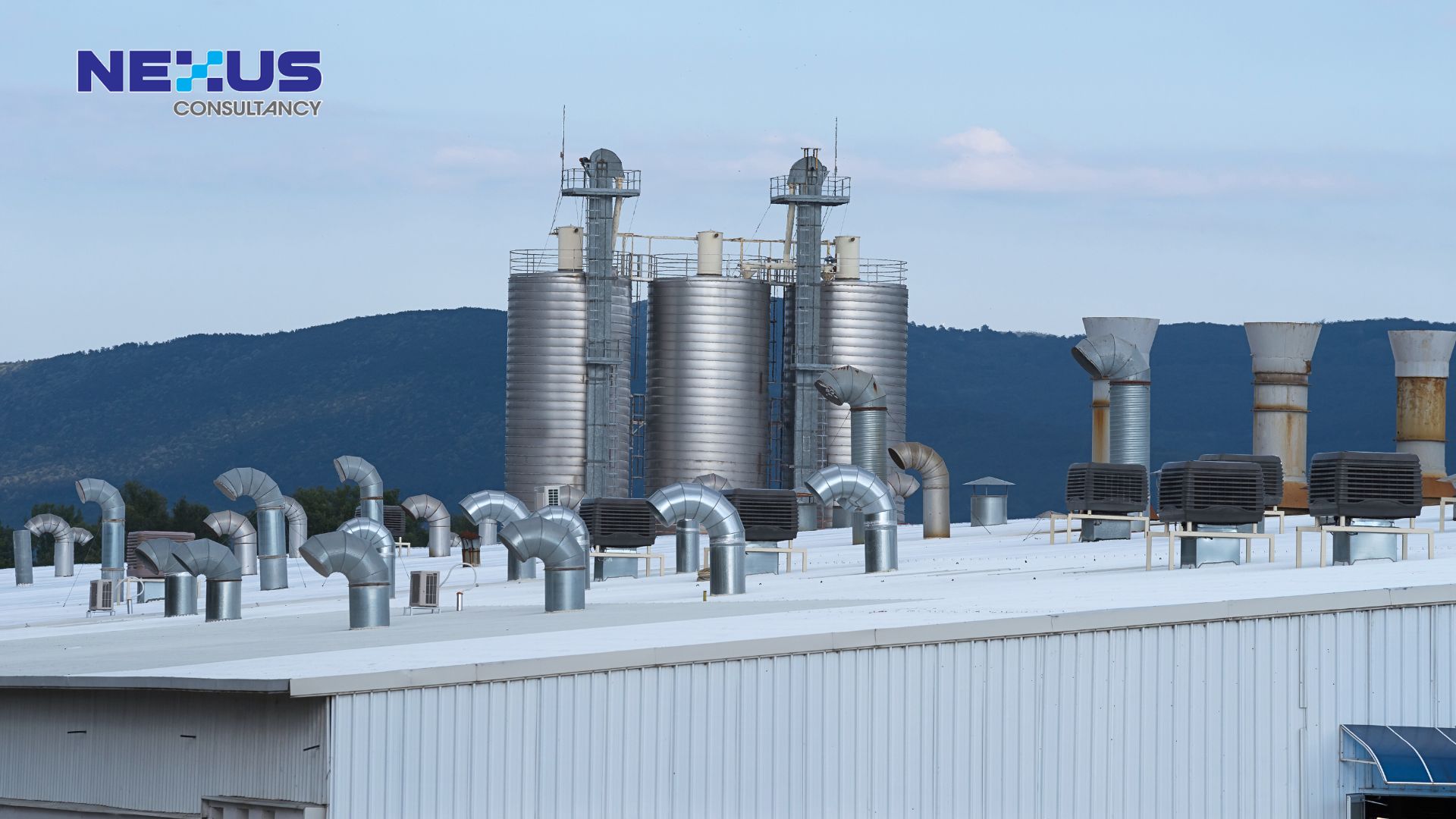
Danielle Tan
Chief Operating Officer
Secure your food business with FSSC 22000 certification! Enhance safety and compliance. Get expert help—Contact us today!

In today’s competitive food industry, maintaining food safety and consumer trust is essential. Food manufacturers, suppliers, and service providers are increasingly expected to prove they have effective food safety management systems (FSMS) in place that comply with international standards. One of the most widely recognized certifications in the food industry is FSSC 22000 certification. Whether you’re a food manufacturer, packager, transporter, or supplier, obtaining FSSC 22000 can provide access to new markets, improve brand credibility, and safeguard your business from costly product recalls.
In this guide, we’ll explore:
- What is FSSC 22000?
- Why is FSSC 22000 important for Malaysian businesses?
- Key components of FSSC 22000
- FSSC 22000 vs ISO 22000
- Benefits of FSSC 22000 certification in Malaysia
- Steps to achieve FSSC 22000 certification
- Common challenges in FSSC 22000 implementation
- Tips for a successful FSSC 22000 certification journey
What is FSSC 22000?
FSSC 22000 stands for Food Safety System Certification 22000, a globally recognized certification scheme aimed at establishing a robust Food Safety Management System (FSMS). This certification is essential for managing food safety risks in the food supply chain. FSSC 22000 is composed of:
– ISO 22000:2018 – The food safety management system requirements standard.
– Prerequisite Programs (PRPs), like ISO/TS 22002-1 for food manufacturing, focusing on essential operational procedures.
– FSSC additional requirements, such as food fraud prevention and food defense.
With FSSC 22000, you can demonstrate your commitment to food safety to international retailers, manufacturers, and food service providers, making it a critical step for success in Malaysia’s food industry.
Why is FSSC 22000 Important for Malaysian Food Businesses?
In Malaysia’s food industry, regulatory compliance and consumer trust are crucial for success. FSSC 22000 ensures that businesses meet global food safety standards and legal requirements while improving internal operations. The certification helps businesses to:
– Comply with local and international food safety regulations.
– Meet customer demands for safe food products.
– Minimize food safety risks such as contamination, allergen management, and foodborne illness outbreaks.
– Improve internal processes and supply chain management.
In a highly competitive market like Malaysia, many businesses require GFSI-certified suppliers. By achieving FSSC 22000 certification, you can secure valuable business opportunities and strengthen your brand’s credibility.
Key Components of FSSC 22000
FSSC 22000 is built on three critical pillars:
1. ISO 22000 Standard Requirements
This forms the foundation, focusing on a preventive approach to food safety. It covers:
– Hazard analysis and critical control points (HACCP)
– Leadership commitment
– Risk-based thinking
– Continuous improvement
2. Prerequisite Programs (PRPs)
PRPs address operational conditions such as:
– Cleaning and sanitation
– Pest control
– Allergen management
– Supplier management
3. FSSC Additional Requirements
These requirements include:
– Food fraud prevention
– Food defense
– Management of services and purchased materials
FSSC 22000 vs ISO 22000: Key Differences
Although ISO 22000 forms the backbone of food safety management systems, FSSC 22000 adds sector-specific prerequisites and extra requirements demanded by major retailers and food companies. Here’s a comparison:
| Aspect | ISO 22000 | FSSC 22000 |
| Recognition | ISO Standard | GFSI-Recognized |
| Requirements | Basic FSMS | FSMS + PRPs + Additional Requirements |
| Certification Appeal | General | Retailer, Manufacturer Preference |
For businesses aiming to meet GFSI certification standards and remain competitive in Malaysia’s food supply chain, FSSC 22000 is the preferred choice.
Benefits of FSSC 22000 Certification
Achieving FSSC 22000 certification offers numerous benefits:
– Global recognition, making it easier to access international markets.
– Compliance with Malaysia’s food safety regulations and international laws.
– Increased consumer trust and stronger brand credibility.
– Reduced risk of food safety incidents and costly recalls.
– Enhanced operational efficiency and a culture of continuous improvement.
– Improved food defense and fraud prevention.
How to Get FSSC 22000 Certified
1. Understand the Standard
Familiarize yourself with ISO 22000, relevant PRP documents (such as ISO/TS 22002-1), and FSSC additional requirements.
2. Conduct a Gap Analysis
Perform an internal assessment or engage a consultant to identify gaps between your existing system and FSSC 22000 standards.
3. Develop or Update FSMS
Implement missing policies, procedures, monitoring systems, and corrective actions.
4. Employee Training
Train key personnel on food safety principles, PRPs, and internal audit procedures.
5. Internal Audit and Management Review
Conduct an internal audit and review the system’s effectiveness at the management level.
6. Certification Audit
Partner with an accredited FSSC certification body for Stage 1 (document review) and Stage 2 (site audit).
7. Certification Decision
If compliant, receive your FSSC 22000 certificate, valid for three years, with annual surveillance audits.
Challenges in Implementing FSSC 22000
Common challenges during implementation include:
– Resource constraints (time, budget, personnel).
– Complex documentation and record-keeping requirements.
– Resistance to change from staff.
– Maintaining PRPs and managing food fraud and defense efforts.
However, with early planning, management support, and effective communication, these challenges can be mitigated.
Tips for Successful FSSC 22000 Certification
– Secure leadership commitment from the start.
– Develop a clear timeline and assign responsibilities.
– Invest in staff training to close knowledge gaps.
– Keep systematic documentation.
– Consider engaging a consultant for smoother implementation.
– Conduct thorough internal audits before the official audit.

Final Thoughts
In Malaysia’s competitive food industry, FSSC 22000 certification is more than just a regulatory requirement – it’s a strategic advantage. It builds consumer trust, minimizes risk, and opens doors to global market opportunities.
Take the first step towards protecting your food business and brand by getting certified today.
Ready to Future-Proof Your Business?
Don’t let compliance gaps hold you back. Contact us today to speak with one of our experts and get personalized guidance on how FSSC 22000 certification can streamline your operations, reduce risks, and unlock global growth opportunities for your food business.
We’re here to help you every step of the way. Book your consultation now and take the first step toward a safer, more efficient, and compliant food business.






